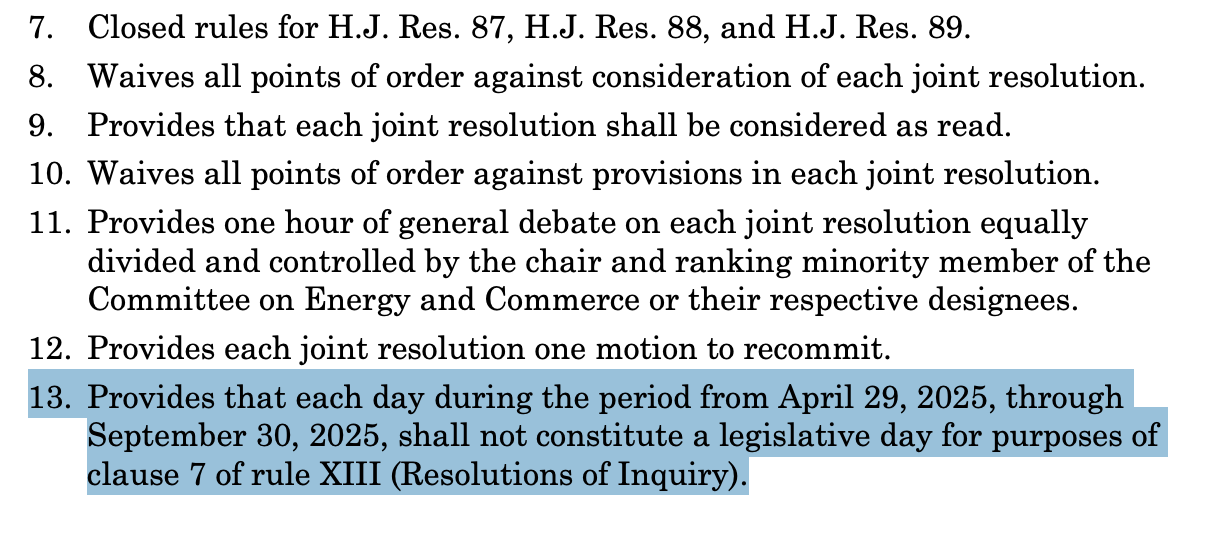Speaker Johnson Plans Vote to Curb Congressional Oversight of Trump, Musk
Congress will vote on new rules to shut down its own investigative powers of the executive branch.
The House of Representatives will vote on Tuesday for a change in rules that will prevent lawmakers requesting disclosures from the Trump administration.
The shift, quietly released last night by Republican leaders, will shut down so-called “Resolutions of Inquiry” – a congressional tool for demanding factual information or documents in the possession of the president or from a cabinet secretary – through September 30th.
The rules reclassify legislative days to prevent the enactment of the investigative resolutions:
Resolutions of inquiry have existed since the very first Congress to seek answers from the executive branch. If passed in the committee of jurisdiction, the resolution gains “privileged” status and goes directly to a full vote before the entire chamber.
In recent weeks, a number of these investigative resolutions have been introduced. One such resolution demands documents about Elon Musk's status as a special government employee and to disclose information about his potential conflicts of interest. Another resolution requests information about whether DOGE is using artificial intelligence to identify cuts and impose layoff decisions in the federal government.
Rep. Adam Smith, D-Washington State, sponsored a resolution to produce answers on the so-called “Signalgate” controversy, including the extent to which the administration uses the messaging app to discuss national security matters.
The attempt to shut down the resolution of inquiry process outside of an emergency appears to be without precedent.
“Speaker Johnson is trying to blind Congress and take away one of the only tools where the majority of Representatives, unfiltered by party leadership, can conduct oversight,” said Sean Vitka of Demand Progress, a watchdog group.
Vitka's organization notes that the Signalgate resolution only requires just two members of House Armed Services Committee Republican lawmakers to pass. Gaining two GOP lawmakers on the committee would force a full House floor vote by the end of next week.
The rules that govern the procedures for such inquiries were first adopted in 1879. Any member, regardless of party or seniority, can propose an inquiry and resolutions may pass on a simple-majority vote.
During the 1970s, the resolutions became a vital tool for lawmakers to obtain information about the ongoing Vietnam War. In more recent years, House members have proposed inquiries related to the 2008 bank bailouts, immigration data, and nuclear safety records, among other issues.




